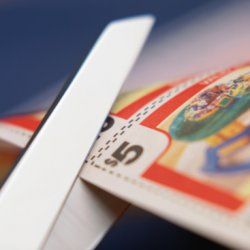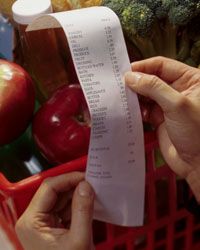Would you believe it's possible to save more than 90 percent on your grocery bills? It takes measures many people would consider extreme, but while most of us just glance remorsefully at receipts from the grocery store -- accepting that the total came out so high yet again -- there are some who leave the supermarket with a skip in their step and a lot more money in their wallets.
The secret to their success is coupons. Well, coupons, a little bit of planning and extra storage space! That's because buying in bulk usually goes hand-in-hand with extreme coupon use, so you can stock up when deals align to make products super cheap. Items don't go on sale every day, after all; you have to get products while the getting's good. So if you feel like saving some cash -- and you have some space in the garage or an extra-large pantry, plus some free time for the effort -- then here are some extreme coupon tips that even normal shoppers can get on board with.
Advertisement





